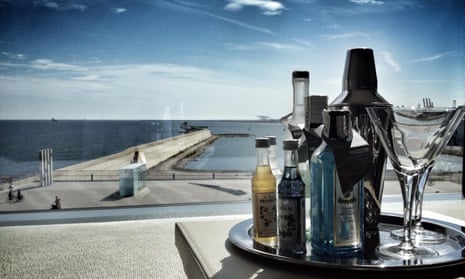For my generation, arriving at college in the 1960s and 70s, the dire warnings were all about drugs. My parents sat me down and told me about the dangers of smoking “pot”, which they had read about in the papers. But they never said a word about alcohol. When I asked my mother what I should drink when I went to bars with my new student friends, she suggested cider. It was soon abandoned for the joys (or so they seemed at the time) of a cheap red wine called valpolicella.
Now the baby-boom generation is paying the price for what researchers writing in the British Medical Journal call “liberal views” towards alcohol. “Risky drinking” is in decline for other age groups, especially among people aged under 35, where alcohol-related hospital admissions have dropped from almost 30% to 9%. People in their 20s and 30s think nothing of sticking to water or soft drinks, and for the most part they don’t face anything like the social pressure that existed for years after I left university.
But alcohol-related hospital admissions have tripled among people aged between 55 and 74 during the last decade; the group now accounts for almost half of such cases, with more than 500,000 admissions in 2015-16. The baby-boom generation is used to being blamed for most of the world’s misfortunes; and now, it seems, we are paying for a misspent youth. The habits acquired in those long-gone days are hard to shake off – and one of the worst, for people of my age, was drinking on an empty stomach.
If you were broke, which I was at university, and for quite a few years after, it was easy to spend the evening in the pub and make do with a nourishing bag of chips, liberally sprinkled with salt and vinegar, on the way home. I remember “races”, more accurately a pub crawl, when teams of half a dozen students tied their legs together and proceeded from pub to pub, knocking back a pint at each one.
In our defence, there were few health warnings about drinking too much in those days. Every generation thinks it is immortal, and we were no different. We didn’t know about liver damage. Cirrhosis was an obscure disease we read about in biographies of long-dead authors. At parties, refusing another drink attracted ribbing and ridicule, as though staying sober was for wimps. I cringe when I remember hearing someone urge “Oh, go on, another one won’t hurt,” even though the holder of the empty glass was driving home.
Attitudes towards drink-driving have changed dramatically, I’m glad to say, and many people of my age confine their drinking to meals. But it is hard to convey just how normalised heavy drinking was, with no advice about safe limits or having days off.
Men and women viewed it differently, I seem to remember, although it might just be that their drinking habits were viewed differently by other people. Even now, you don’t have to look far to find censorious attitudes towards women and alcohol, but some men treated it as a challenge – as though being able to “hold their drink” proved their manliness in some way.
A few years ago, I began to notice references to “heroic” drinking in obituaries of well-known people – authors, journalists and so on – who had clearly died too young of alcohol-related diseases. I recognised it as a species of denial, demonstrating how hard it is for some people over the age of 50 even to acknowledge the existence of alcoholism. It is part of a growing age divide, more evident every year, that the over-50s still tend to dismiss dangers that are obvious to younger generations.
The baby boomers grew up with moral panics about cannabis and LSD, distrusting almost everything we were told by adults, and missed the thing that was under our nose. The statistics on age and drinking tell the story: when it comes to that second or third bottle of wine, much of my generation is still in denial.
